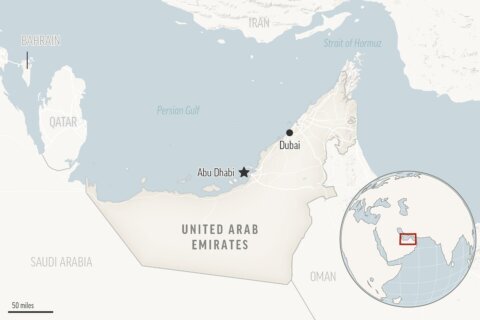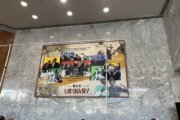MANAGUA, Nicaragua (AP) — After nearly a decade, Nicaragua’s congress finally canceled on Wednesday a controversial canal concession granted to a Chinese businessman that critics said endangered the environment and threatened to displace rural communities.
Despite a symbolic “groundbreaking” in 2014, no work was done on the canal that was to link Nicaragua’s Atlantic and Pacific coasts. At one point, crews broke ground on access roads near the canal but digging the waterway never started.
Thousands of Nicaraguan farmers had protested against land seizures meant to create a route for the government-backed project.
In 2019, a Nicaraguan judge sentenced three farmers’ leaders who participated in the protests to prison for 216 years, 210 years and 159 years. They were accused of promoting a “failed coup” against the government. Nicaraguan law caps prison time actually served at 30 years.
The proposed $50 billion, 172-mile (278-kilometer) canal across this Central American nation was long viewed as a joke that later turned deadly serious. The canal and its potential effect on the environment became a symbol of the odd and arbitrary nature of President Daniel Ortega’s increasingly repressive regime.
Ortega’s government claimed the canal would create tens of thousands of jobs and stimulate the poor Central American nation’s economy.
Detractors argued it posed serious environmental risks, would displace thousands of families in the countryside and was financially unfeasible.
The canal concession was granted to the Hong Kong-based company HK Nicaragua Canal Development Investment Co. Limited, owned by Chinese businessman Wang Jing.
Copyright © 2024 The Associated Press. All rights reserved. This material may not be published, broadcast, written or redistributed.






